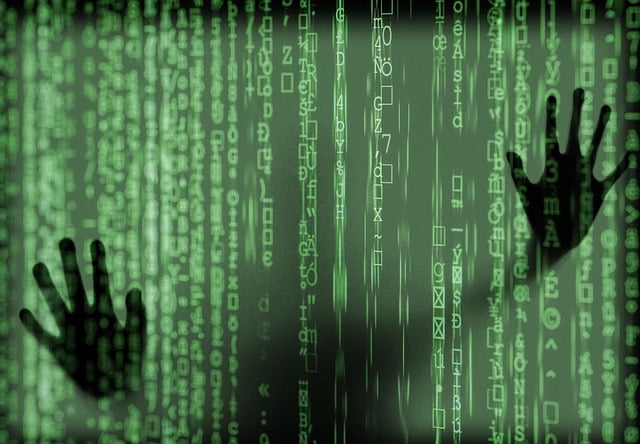
16 Jun What is the Singularity? – An exploration of Artificial Intelligence
The Artificial Intelligence Zeitgeist
The third wave of artificial intelligence is already underway, in the past, we at Security Middle East Magazine have talked with Alusio Figeurido about the emergence of artificial intelligence and its practical applications across the Security ecosystem, and have written countless articles both online and in our print publication studying the continued incorporation of AI into various public and private sectors.
Security technology, surveillance, access control and more are all streamlined through the use of AI. Neural Networks mixed with Databases can come together to distinguish key patterns and important information helping to keep businesses secure and improving functionality across a large number of industries.
Within the next week of the writing of this feature, TRASSIR will hold a webinar showcasing how Artificial Intelligence is adding new functionality to access control and surveillance through constantly updating databases. Cameras themselves have an understanding of which person on a screen is who and where they are moving around premises, holding incredible potential for the future of surveillance solutions.
It’s safe to say that Artificial Intelligence is security in its zeitgeist.
The ‘Space Race’ of Artificial Intelligence
Companies across the Security Industries are utilizing ChatGPT 4, which has just been released, to enhance their products and bolster their line-up of offered services. However, by the time such products are released to the public and in rotation – ChatGPT 5 will have been released, and so on.
Artificial intelligence is innovating itself at faster and faster speeds.
As Artificial Intelligence continues to advance, so do its capabilities and capacities. Artificial intelligence is currently being used as a basis for several cyber-security defence programmes, such as the Darktrace AI Loop.
A refined, learning algorithm that reacts and responds to malicious code and intrusions, actively restoring servers and data to a state before any attack happened, whilst learning what’s taken place to avoid the same kind of attacks in the future. One can assume that as Artificial Intelligence advances, so too will the Darktrace AI loop.
However, many of the tools used by the cybersecurity industry are also currently in use by threat actors. Technology will have to learn how to trick artificial intelligence and to do so, it’s likely to use its own, more advanced – artificial intelligence.
AI is fallen into a pattern which demands newer generations of AI to iterate upon the old, what could be understood as a kind of ‘Space Race’ of Artificial Intelligence.
Our world of Interconnectivity and Smart Cities
AI will be incorporated into more and more parts of society. At the Security Middle East Conference 2023, we took the opportunity to discuss what makes a Smart City.
Initially, many in the audience believed it was a conversion of a city into a high-tech convergence of futuristic technologies. However, this point was countered by Craig Ross of the Diriyah Gate Development Authority, who stated:
“Many think Smart Cities are about all things cyber, but really its about the connection of the digital and the physical, all things interconnected.”
Looking at a city such as The Line, a smart city is something which has interconnectivity between commercialism, residential districts, and digital and physical security. Cameras that can track a threat actor across miles, quickly determine their intent.
Artificial Intelligence that can turn the heating on, prepare coffee and get computers up and running for you, simply based on your sleep schedule, compensated with the daily traffic.
An entire person’s life streamlined, with AI.
Where is Artificial Intelligence Headed – The Singularity
In 2014, both Stephen Hawking and Elon Musk proclaimed that Artificial Intelligence was more than capable of achieving an Artificial Superintelligence status and outpacing everything known before it within the realm of technology.
In an event described as an ‘intelligence explosion’ by British Author I.J. Good, an AI – with the capability to create new generations of itself, will enter a ‘runaway state’, creating generations of itself faster and faster to the point humans working on the intelligence cannot thoroughly analyze one iteration before the next is built.
Eventually, this runaway intelligence will be more capable than any intelligence before it, a conglomerate of code that functions independently, the moment artificial intelligence surpasses human technological capability is referred to in literature as ‘The Singularity’.
Very similar to ChatGPT models now, or the intention behind the Darktrace AI loop.
The Worst Case Scenario
Many technologists now believe the Singularity is a matter of when, not if, and that when is right around the corner.
Regularly, ChatGPT is used to develop code based on muddled prompts, generating a better understanding of what a person wants than the person themselves realises – alongside being able to write entire programmes and functions in any coding language.
Essays, video games, art and more are now totally artificially generated.
The independent capabilities of AI, mixed with the emerging interconnectivity of Smart Cities, lead to a potential future with artificial intelligence beyond our control managing every part of our daily lives.
As artificial intelligence continues to upgrade, so too must physical security systems and access control to compensate – particularly biometrics technology and – most importantly – regional talent.
Sceptics of the Singularity
The idea of a ‘singularity’ event happening is a common belief now amongst not only scientists but also, pop culture.
However, some experts dispute the plausibility of such an event. One claim made was that artificial intelligence growth is likely to run into decreasing returns instead of accelerating ones, as was observed in previously developed human technologies.
Security in the Future
In the future, we will see a rise in the governance and measurement of Artificial Intelligence, as well as the demand for proof of person.
Spoofing an individual is becoming easier and easier, so therefore, more digital deals will require the inclusion of biometric authentication and more.
The growth of AI is inevitable, alongside a ‘singularity’, however, the way in which we respond is up to us. Security companies within the Middle East and beyond will see more and more authentication methods, cloud protection and cybersecurity-fortifying data centres, as a means of protecting companies and individuals against those with AI capabilities.

